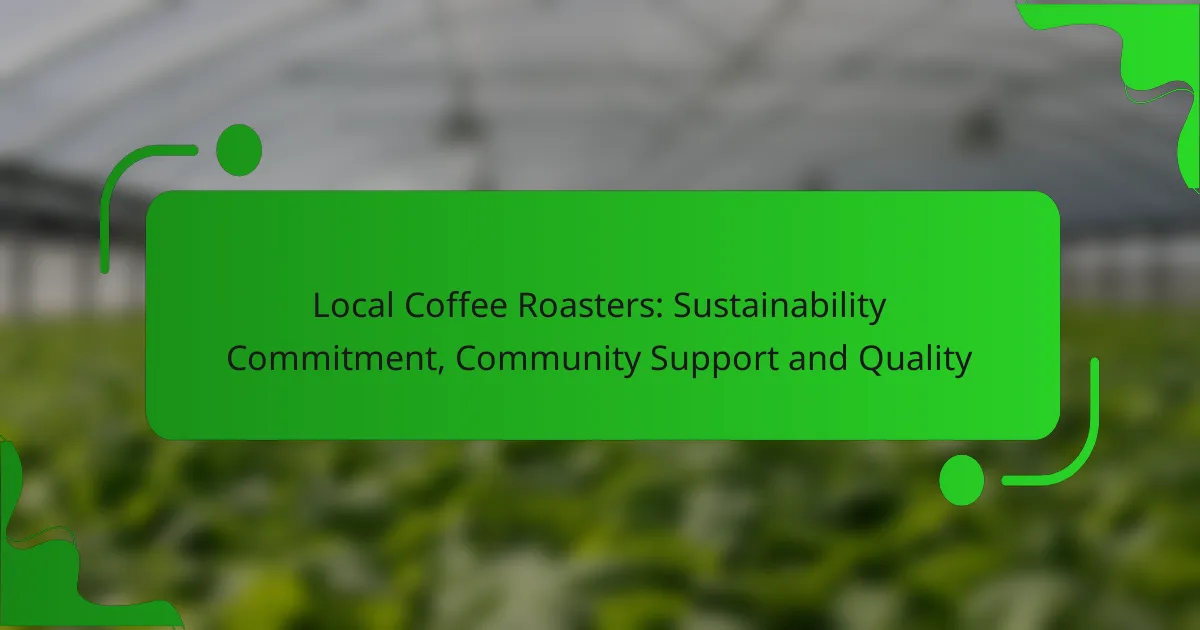Organic coffee is celebrated for its numerous benefits, including enhanced flavor, higher nutritional value, and reduced exposure to harmful chemicals. With certifications ensuring adherence to environmentally sustainable farming practices, consumers can enjoy their coffee with the assurance of supporting both health and ethical labor conditions. In urban areas like Los Angeles, a variety of local shops and online retailers provide diverse options for those seeking organic coffee tailored to their tastes and convenience.

What are the benefits of organic coffee?
Organic coffee offers several advantages, including higher nutritional value, reduced chemical exposure, and enhanced flavor. Consumers often choose organic coffee for its health benefits and commitment to environmentally friendly farming practices.
Higher antioxidant levels
Organic coffee typically contains higher levels of antioxidants compared to conventionally grown coffee. Antioxidants help combat oxidative stress in the body, which can reduce the risk of chronic diseases. The absence of synthetic fertilizers and pesticides in organic farming contributes to this enhanced antioxidant profile.
Studies suggest that organic coffee can have up to 30% more antioxidants, making it a healthier choice for coffee lovers. Choosing organic brands can help maximize these health benefits.
Reduced pesticide exposure
One of the key benefits of organic coffee is the significant reduction in pesticide exposure. Organic farming practices prohibit the use of synthetic pesticides and herbicides, which can be harmful to both health and the environment. This leads to cleaner coffee beans and a safer product for consumers.
By opting for organic coffee, consumers can minimize their intake of harmful chemicals that may be present in conventionally grown coffee. This is particularly important for those sensitive to chemicals or looking to reduce their overall chemical exposure.
Better taste profile
Many coffee enthusiasts argue that organic coffee offers a superior taste profile. The organic farming methods allow for a more natural growing process, which can enhance the flavor and aroma of the beans. This often results in a richer and more complex cup of coffee.
Additionally, organic coffee is often grown in diverse ecosystems, which can contribute to unique flavor notes. Tasting different organic brands can help consumers find their preferred flavor profiles.
Support for sustainable farming
Choosing organic coffee supports sustainable farming practices that prioritize environmental health. Organic coffee farms often employ methods that promote biodiversity, soil health, and water conservation. This not only benefits the local ecosystem but also helps combat climate change.
By purchasing organic coffee, consumers contribute to a market that values sustainability and ethical farming practices. This choice can lead to a positive impact on both the environment and the communities that produce the coffee.

How does organic coffee certification work?
Organic coffee certification ensures that coffee is grown and processed according to specific agricultural standards. These standards typically prohibit synthetic pesticides and fertilizers, promoting environmentally sustainable practices and often supporting fair labor conditions.
USDA Organic certification
The USDA Organic certification is a widely recognized standard in the United States. To achieve this certification, coffee must be grown without synthetic chemicals, genetically modified organisms, or irradiation. Additionally, the land must be free from prohibited substances for at least three years prior to harvest.
Producers must undergo an annual inspection and maintain detailed records of their farming practices. This certification assures consumers that the coffee meets strict organic standards, which can enhance marketability and consumer trust.
Fair Trade certification
Fair Trade certification focuses on equitable trading conditions for farmers, ensuring they receive fair prices for their coffee. This certification promotes sustainable farming practices and supports community development through premiums paid on top of the market price.
To be Fair Trade certified, producers must adhere to specific social, economic, and environmental standards. This certification not only benefits farmers but also appeals to consumers looking for ethically sourced products.
Rainforest Alliance certification
The Rainforest Alliance certification emphasizes environmental sustainability and biodiversity conservation. Coffee farms that achieve this certification must demonstrate responsible land use, protect wildlife habitats, and promote the well-being of workers and their communities.
Certification involves a rigorous assessment process, including audits and compliance with specific environmental and social criteria. This certification is appealing to consumers who prioritize sustainability and ecological responsibility in their purchasing decisions.

Where can I find organic coffee in Los Angeles?
In Los Angeles, you can find organic coffee at various local coffee shops, farmers’ markets, and online retailers. Each option offers unique selections and price points, making it easy to choose based on your preferences and convenience.
Local coffee shops
Many coffee shops in Los Angeles prioritize organic offerings, sourcing beans from certified organic farms. Notable spots include Stumptown Coffee Roasters, which features a range of organic blends, and Café Grumpy, known for its commitment to sustainable practices.
When visiting these shops, inquire about their organic certifications and the origins of their coffee. This ensures you are supporting businesses that align with your values regarding sustainability and health.
Farmers’ markets
Los Angeles hosts numerous farmers’ markets where local vendors sell organic coffee. The Hollywood Farmers’ Market and the Santa Monica Farmers’ Market are popular choices, featuring various roasters who offer freshly brewed organic coffee and whole beans.
Shopping at farmers’ markets allows you to engage directly with the producers, learn about their farming practices, and often taste samples before purchasing. Look for vendors with USDA Organic certification for assurance of quality.
Online retailers
For convenience, many online retailers specialize in organic coffee, delivering directly to your door. Websites like Amazon, Thrive Market, and local roasters’ own sites often have extensive selections, including single-origin and blended options.
When purchasing online, check for certifications and customer reviews to ensure you choose high-quality organic coffee. Consider subscribing to a service that offers regular deliveries for the best deals and freshness.

What should I consider when choosing organic coffee?
When selecting organic coffee, consider factors such as roast level, flavor notes, and brand reputation. These elements significantly influence your overall coffee experience and help ensure you choose a product that aligns with your preferences and values.
Roast level
The roast level of coffee affects its flavor profile and aroma. Common roast levels include light, medium, and dark, each offering distinct characteristics. For instance, light roasts tend to have a brighter acidity and more pronounced fruity notes, while dark roasts are often bolder with a richer, smoky flavor.
When choosing a roast level, think about your taste preferences. If you enjoy a milder, more nuanced flavor, opt for light or medium roasts. If you prefer a stronger, more robust cup, dark roasts may be more suitable.
Flavor notes
Flavor notes in organic coffee can vary widely based on the origin, processing method, and roast level. Common flavor notes include chocolate, nuts, fruit, and floral undertones. Understanding these notes can enhance your coffee selection process.
To find your ideal flavor profile, consider trying different coffees from various regions. For example, Ethiopian coffees often have fruity and floral notes, while Colombian coffees are typically nutty and chocolatey. Tasting a range of options can help you identify what you enjoy most.
Brand reputation
The reputation of the coffee brand can impact your choice, as it often reflects the quality and ethical practices behind the product. Look for brands that prioritize transparency, sustainable sourcing, and fair trade practices.
Research customer reviews and certifications to gauge a brand’s reliability. Brands with organic certifications, such as USDA Organic or EU Organic, indicate adherence to specific agricultural standards, ensuring that the coffee is grown without synthetic pesticides or fertilizers.

How does organic coffee compare to conventional coffee?
Organic coffee is produced without synthetic fertilizers and pesticides, offering a more natural alternative to conventional coffee. This difference in farming practices can lead to variations in taste, health benefits, and environmental impact.
Health benefits
Organic coffee is often considered healthier due to the absence of chemical residues from pesticides and fertilizers. Many consumers report that organic coffee has a richer flavor and may contain higher levels of antioxidants, which can contribute to overall health.
Some studies suggest that organic coffee may have lower levels of harmful substances, making it a safer choice for regular consumption. However, individual responses can vary, so it’s wise to try different types to find what suits you best.
Environmental impact
Organic coffee farming practices prioritize sustainability, promoting biodiversity and soil health. These methods typically involve crop rotation and natural pest control, which can reduce environmental degradation compared to conventional methods that often rely on chemicals.
Choosing organic coffee can support eco-friendly farming practices and help reduce pollution and habitat destruction. This choice aligns with a growing consumer preference for products that are better for the planet.
Cost differences
Organic coffee generally costs more than conventional coffee due to the more labor-intensive farming practices and certification processes involved. Prices can vary widely, often ranging from a few dollars to over twenty dollars per pound, depending on the brand and quality.
While the higher price may deter some consumers, many find the benefits justify the cost. When shopping, consider looking for sales or bulk purchasing options to make organic coffee more affordable.



